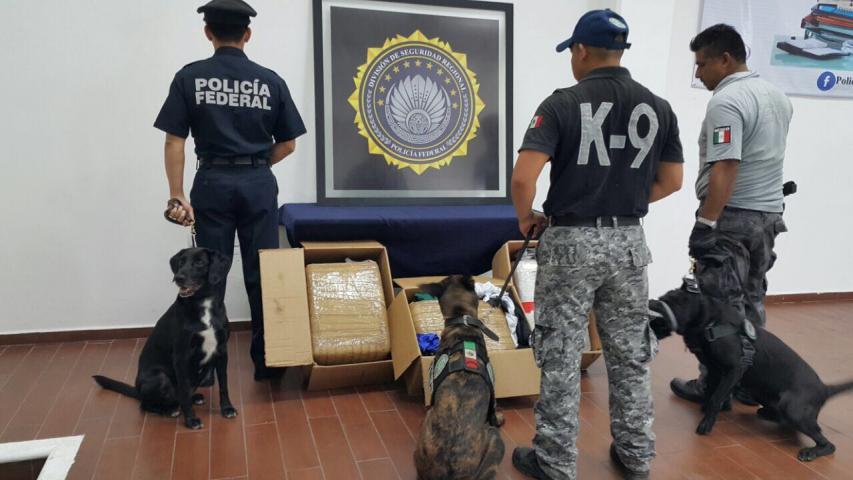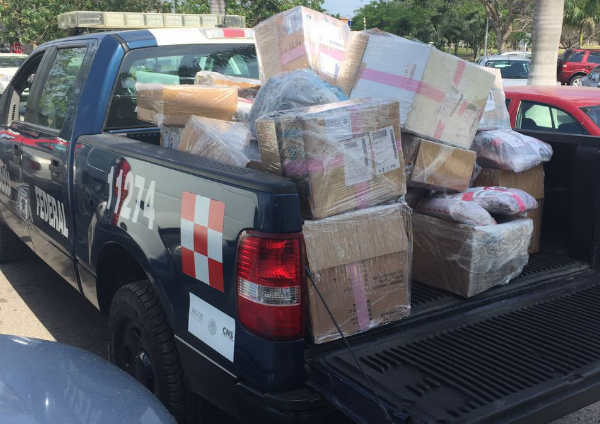Although package-delivery firms have strict standards, drug shipments are continuous, despite periodic reviews by the authorities…
MERIDA – Delivery companies are always vulnerable to organized crime, which knows how to evade preventive measures to send drug shipments. The problem is that some firms have a policy to verify the content of shipments, while others do not, and that makes them victims of crime, said Juan Antonio Garcia, manager of a commercial firm dedicated to this enterprise.
He explained that there is a federal regulation on the operation of these companies. However, cases continue to occur, and this has a negative impact on the sector because when a drug is detected, the authorities temporarily close the business while investigations are carried out.
He said that on a monthly basis there are several joint operations between the Attorney General’s Office (PGR), the Federal Police and the State Attorney General’s Office (FGE), and that the security agents assist with canine personnel to detect drugs in the packages ready to be sent to different parts of the country.
These operations are random, so you do not know when they are going to visit a business. If drugs were detected in a package inside the company, employees could be subject to investigation, he added.
It is noted that the sender recognizes and accepts that the company has the right — not the obligation — to inspect the shipment. A company may require the sender to open and acknowledge contents; if he refuses, the company will be free of any responsibility.

In recent days a marijuana shipment with destination to Merida was seized in a private delivery enterprise (Photo: Yucatán a la Mano)
Delivery companies agree on some of the products that can’t be sent such as:
- money,
- negotiable instruments,
- jewelry, antiques,
- precious metals,
- art pieces,
- industrial coals or diamonds,
- liquors and wines,
- weapons and explosives,
- vegetables and animals,
- obscene or offensive materials,
- effects restricted by law or by authority provisions and/or by the International Air Transport Association (IATA), the International Civil Aviation Organization (ICAO) or title 49 of the North American Federal Code of Ordinances, including hazardous materials, such as corrosive or flammable, easy to decompose and those that give off bad odors, as well as articles of foreign origin that are not legally protected with the documentation that accredits their legal admission to the country; in this last case an original or notarized certified copy of that document must be attached to the shipment.
However, despite the restrictions, the parcel companies are still vulnerable as was seen in recent days, with a shipment of 30 kilograms of marijuana detected in a company located in the Obrera de Mérida neighborhood, which were seized by the Public Ministry of the Federation.
Source: www.laverdadnoticias.com


